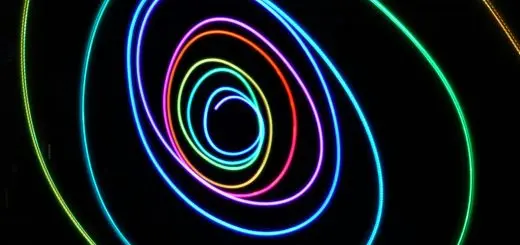Ancient Wisdom, Modern Healing: The Resurgence of Reiki

Looking for more amazing products? Check out our online store and explore our collection here! Happy shopping!
Before diving in, please note: This post is for informational purposes only. If you’d like to know more about how we approach topics, feel free to check out our friendly Disclaimer Page.
Hey there, amazing readers! 
We’re committed to delivering quality posts, and your support (even just sticking around despite the ads) means everything to us. So, bear with us, and thanks for helping us keep the good vibes rolling. Now, on to the fun stuff!
TRANSLATE BUTTON AT THE END OF THE ARTICLE
Ancient Wisdom, Modern Healing: The Resurgence of Reiki
Overview
In recent years, there has been a significant resurgence of interest in ancient healing practices such as Reiki.
Reiki is a holistic approach to healing that aims to promote physical, mental, and emotional wellbeing.
It involves the use of energy healing techniques to balance and align the body’s energy centers, known as chakras.
This article delves into the origins of Reiki, its principles, healing techniques, benefits, scientific perspectives, integration into modern healthcare, training process, certification, and its emerging synergy with Western medicine.
By exploring the ancient wisdom of Reiki, we can discover a powerful path to healing and self-discovery in our modern world.
Understanding Reiki: A Holistic Approach to Healing
Reiki, pronounced as "ray-kee," is a Japanese healing technique that dates back to the late 19th century.
It is a holistic approach to healing that focuses on the body’s energy system.
Reiki practitioners believe that imbalances or blockages in the flow of life force energy can lead to physical, mental, and emotional ailments.
By channeling this universal life force energy, Reiki aims to restore balance and promote healing.
The Origins of Reiki: Tracing its Ancient Roots
Reiki was developed by Mikao Usui, a Japanese Buddhist monk, in the late 1800s.
Usui embarked on a quest for knowledge and enlightenment, studying ancient texts and philosophies.
During a 21-day meditation retreat on Mount Kurama, he experienced a profound spiritual awakening and received the healing energy of Reiki.
Usui devoted the rest of his life to practicing and teaching Reiki, establishing the Usui Reiki Ryoho Gakkai, which still exists today.
Unveiling the Principles of Reiki: Universal Life Energy
At the core of Reiki are five principles or precepts that guide practitioners in their healing work and personal growth.
These principles serve as a moral compass and provide a framework for living a balanced and harmonious life.
They are:
Just for today, I will not be angry.
Just for today, I will not worry.
Just for today, I will be grateful.
Just for today, I will do my work honestly.
Just for today, I will be kind to every living thing.
These principles encourage individuals to live in the present moment and cultivate positive attitudes and behaviors.
Reiki’s Healing Techniques: Channeling Energy for Wellness
Reiki healing involves the gentle laying of hands on or above the body to transmit healing energy.
Practitioners act as conduits for the universal life force energy, allowing it to flow through them and into the recipient.
This energy works to rebalance and align the recipient’s chakras, promoting physical, mental, and emotional wellbeing.
Reiki can be used for self-healing, as well as for healing others and even animals, plants, and the environment.
The Benefits of Reiki: Promoting Physical and Mental Wellbeing
Reiki offers a wide range of benefits for individuals seeking to improve their overall wellbeing.
Some of the key benefits of Reiki include:
Stress reduction: Reiki helps to relax the body and mind, reducing stress and promoting a sense of calm and inner peace.
Pain management: Reiki can help alleviate physical pain and discomfort by promoting the body’s natural healing abilities.
Emotional healing: Reiki can assist in releasing emotional blockages and promoting emotional balance and healing.
Improved sleep: Reiki can help individuals achieve deep relaxation, leading to improved sleep quality and patterns.
Enhanced mental clarity: Reiki can clear the mind, improve focus, and promote mental clarity and alertness.
Boosted immune system: Reiki supports the body’s natural defense mechanisms, strengthening the immune system.
Scientific Perspectives: Exploring the Efficacy of Reiki
While Reiki is primarily based on spiritual and energetic principles, there has been increasing scientific interest in understanding its efficacy.
Several studies have explored the effects of Reiki on various health conditions, such as chronic pain, anxiety, and depression.
While the results are promising, more research is needed to fully understand the mechanisms behind Reiki’s healing effects.
Some theories suggest that Reiki may help stimulate the parasympathetic nervous system, promoting relaxation and reducing stress.
Reiki in Modern Healthcare: Integrating Ancient Practices
In recent years, there has been a growing acceptance of complementary and alternative medicine in mainstream healthcare.
Many hospitals and healthcare facilities now offer Reiki as part of their integrative medicine programs.
Reiki is often used to support patients undergoing medical treatments, such as chemotherapy, surgery, or rehabilitation.
Its calming and soothing effects can help reduce anxiety, pain, and side effects of medical interventions.
Additionally, Reiki can be used to support healthcare providers in managing their own stress and promoting their wellbeing.
Reiki Training: Becoming a Reiki Practitioner
To become a Reiki practitioner, individuals must undergo training and receive attunements from a Reiki Master.
Reiki training consists of multiple levels or degrees, each building upon the previous one.
The first level, known as Reiki I, focuses on self-healing and learning the basic hand positions.
Reiki II introduces symbols and techniques for distant healing and working with emotions.
Reiki III, also known as the Master level, allows individuals to teach and attune others to Reiki.
Reiki Certification: Ensuring Quality and Ethics
While there is no universal governing body for Reiki, many reputable Reiki organizations offer certification programs.
These programs provide a framework for training, ethical guidelines, and professional standards.
Seeking certification from a recognized organization can ensure that practitioners adhere to best practices and provide quality care to their clients.
It is important to research and choose a reputable Reiki Master or organization for training and certification.
Reiki and Western Medicine: An Emerging Synergy
The integration of Reiki into Western medicine represents an emerging synergy between ancient healing practices and modern healthcare.
Many healthcare professionals now recognize the value of incorporating complementary therapies like Reiki into their treatment plans.
Reiki can be used alongside traditional medical interventions to enhance overall wellbeing and support the body’s natural healing processes.
This integration encourages a more holistic and patient-centered approach to healthcare.
Embracing Reiki: A Powerful Path to Healing and Self-discovery
Reiki offers a powerful path to healing and self-discovery in our modern world.
By tapping into the ancient wisdom of Reiki, individuals can experience profound shifts in their physical, mental, and emotional wellbeing.
Whether seeking relief from physical pain, stress reduction, emotional healing, or personal growth, Reiki offers a gentle and non-invasive approach to holistic healing.
With its resurgence in popularity, more individuals are discovering the transformative power of Reiki and embracing it as a complementary practice to enhance their overall quality of life.
Conclusion
The resurgence of Reiki in recent years highlights a growing recognition of the value of ancient healing practices in our modern society.
Reiki offers a holistic approach to healing, promoting physical, mental, and emotional wellbeing.
Its origins trace back to the late 19th century, with Mikao Usui as its founder.
Reiki principles guide practitioners in living a balanced life, and its healing techniques involve channeling universal life force energy to rebalance the body’s energy system.
Reiki offers numerous benefits, including stress reduction, pain management, emotional healing, improved sleep, enhanced mental clarity, and a strengthened immune system.
Scientific perspectives on Reiki’s efficacy are growing, and it is increasingly integrated into modern healthcare.
Reiki training and certification ensure quality and ethics in practice.
The emerging synergy between Reiki and Western medicine encourages a more holistic approach to healthcare.
By embracing Reiki, individuals can embark on a powerful path to healing and self-discovery.

The Enlightenment Journey is a remarkable collection of writings authored by a distinguished group of experts in the fields of spirituality, new age, and esoteric knowledge.
This anthology features a diverse assembly of well-experienced authors who bring their profound insights and credible perspectives to the forefront.
Each contributor possesses a wealth of knowledge and wisdom, making them authorities in their respective domains.
Together, they offer readers a transformative journey into the realms of spiritual growth, self-discovery, and esoteric enlightenment.
The Enlightenment Journey is a testament to the collective expertise of these luminaries, providing readers with a rich tapestry of ideas and information to illuminate their spiritual path.
Our Diverse Expertise
While our primary focus is on spirituality and esotericism, we are equally passionate about exploring a wide range of other topics and niches 

To ensure we provide the most accurate and valuable insights, we collaborate with trusted experts in their respective domains 
Our blog originally focused on spirituality and metaphysics, but we’ve since expanded to cover a wide range of niches. Don’t worry—we continue to publish a lot of articles on spirituality! Frequently visit our blog to explore our diverse content and stay tuned for more insightful reads.
Hey there, amazing reader! 
Check out our store here and take a peek at some of our featured products below! Thanks for being awesome!











